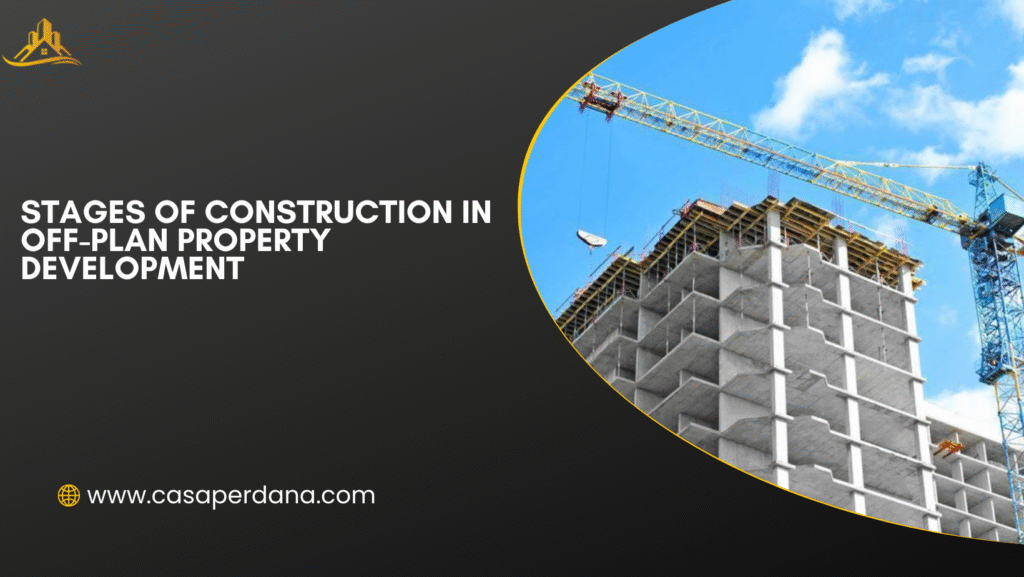As someone who wants to buy a property, you should know the risk of buying off-plan property from unregistered developers. If you are searching for the risk of buying off-plan property from unregistered developers, you are in the right place.

Buying off-plan property may seem attractive, especially with the promise of flexible payments and early bird discounts.
However, purchasing from an unregistered developer carries serious risks that can affect your finances, peace of mind, and long-term investment goals.
This post will let you know the key dangers involved in such transactions, helping you make more informed decisions before parting with your money.
Risks of Buying Off-Plan Property From Unregistered Developers

Here are risks of buying off-plan property from unregistered developers:
1. They Operate Outside the Radar of Government and Real Estate Regulatory Bodies
Unregistered developers operate outside the radar of government and real estate regulatory bodies. This lack of oversight makes it nearly impossible to hold them accountable if they violate the terms of your agreement.
Registered developers must comply with industry standards, building codes, and legal requirements. Without registration, there is no way to confirm whether a developer has the qualifications or capacity to complete the project.
You also lose the protection of national real estate laws. If things go wrong, you may have no official institution to intervene on your behalf, leaving you vulnerable to fraud, scams, and substandard delivery.
2. There’s No Obligation to Complete the Construction or Meet Deadlines
One of the biggest risks with unregistered developers is project abandonment. Since they are not regulated, there’s no obligation to complete the construction or meet deadlines.
Many developers begin projects without adequate funding or proper planning. As a result, they stop working halfway when the money runs out or problems arise. Buyers are left stranded with no completed home and little hope of a refund.
Unlike registered developers who are often required to place funds in escrow accounts, unregistered ones use your payments at will. This uncertainty puts your entire investment in jeopardy from the start.
3. You May Have Quality Issues and Substandard Work
Unregistered developers often compromise on quality to maximize profit. Because they aren’t subject to regulatory inspections or quality assurance reviews, they may use low-grade materials, unqualified labor, and skip necessary building standards.
The finished property might look decent at first, but it may be riddled with problems like cracks, poor drainage, faulty wiring, or weak foundations. Over time, these issues can lead to safety hazards and expensive repairs.
Without warranty coverage or accountability, the financial burden shifts entirely to you. Investing in a registered developer ensures your home is built to meet industry and safety standards.
4. You May Have Difficulty in Securing Loans
Financial institutions are highly cautious when it comes to lending for off-plan properties. If a developer is unregistered, most banks will decline your mortgage application.
They view unregistered developers as high-risk and unreliable due to their lack of documentation, legal recognition, and project history. Without a loan, you’ll be forced to fund the project from personal savings, which can be financially draining. Even if you find a lender, interest rates might be higher due to the associated risk.
Working with a registered developer significantly improves your chances of securing financing with favorable terms and lower risk.
5. You May Have Difficulty Validating Their Business Documentation, Addresses or Aliases
If problems arise, dealing with an unregistered developer becomes legally difficult. These developers often lack valid business documentation and may use fake addresses or aliases.
In the event of a dispute, finding them or initiating a successful lawsuit can be a nightmare. Even if you manage to take them to court, they may not have assets or legal presence to enforce a judgment.
By contrast, registered developers operate within a known legal framework. They are easier to locate, hold accountable, and sue if necessary. Protecting your rights is nearly impossible when dealing with someone who operates outside the law.
6. Having High Possibility of Land Disputes
Land documentation is one of the most sensitive areas in real estate. Unregistered developers may begin construction on land they do not legally own or control.
This opens up the risk of ownership disputes, government demolitions, or court orders halting the project. In many cases, buyers are unaware that the land has encumbrances, such as unpaid taxes, court injunctions, or claims from traditional owners.
Verifying the title of the property becomes difficult because unregistered developers often bypass proper legal procedures. If the land is later reclaimed or declared illegal, you lose both your property and your investment.
7. You May Encounter Hidden Costs and Fraudulent Charges
Unregistered developers often use low initial pricing to attract buyers. Once construction begins, they introduce hidden fees for utilities, infrastructure, finishing, or documentation. These costs are rarely disclosed at the start and may not be backed by official receipts.
By the time you realize the real cost, you’re already financially committed. In extreme cases, some developers collect money and vanish without starting the project.
This bait-and-switch approach is common in unregulated transactions. Dealing with registered developers ensures greater transparency in contracts and cost breakdowns. They are also more likely to be held accountable for any false pricing tactics.
8. You May Not Give Warranty or After-Sales Service
Once you move into a property, issues may surface. These can include plumbing failures, roof leaks, electrical faults, or finishing defects.
With registered developers, you often get warranties and after-sales service to handle such problems. However, unregistered developers disappear once payment is complete.
They don’t offer warranties or maintenance support. You’re left to fix issues at your own expense. This lack of aftercare turns your investment into a liability.
Choosing a registered developer ensures that any post-construction complaints are addressed promptly and professionally, often at no additional cost during the warranty period.
9. Client May Face Cash Flow Issues or Legal Trouble
Project delays are a common frustration in off-plan real estate. But with unregistered developers, these delays are often indefinite. They may face cash flow issues, legal trouble, or mismanagement that stalls progress.
Since they are not under regulatory watch, they aren’t penalized for missed deadlines. Buyers are left in limbo with no clear timeline for handover. You might continue paying rent elsewhere while waiting for years.
Registered developers, on the other hand, are usually bound by delivery timelines. They also risk losing licenses or facing fines for project delays, which pushes them to stay on schedule.
10. Potential Buyers May Experience Negative Impact on Property Value
The resale value of a property built by an unregistered developer is often low. Potential buyers or agents may avoid such properties due to their questionable origin, lack of documentation, or poor construction quality.
If you ever decide to sell or lease the property, finding a buyer may be difficult. Even when you do, the market price may be significantly lower than what you paid.
Investing in a registered project adds legitimacy to your ownership and offers better capital appreciation over time. The initial cost may be higher, but the long-term returns are far more rewarding.
In conclusion, buying off-plan from unregistered developers exposes you to financial loss, legal complications, and emotional stress. While the offer may look attractive, the risks far outweigh the benefits.
Always verify the developer’s registration status, project history, and legal documents before making a down payment. Work with trusted professionals, including real estate agents and legal advisors, to avoid costly mistakes.
Related Searches:




